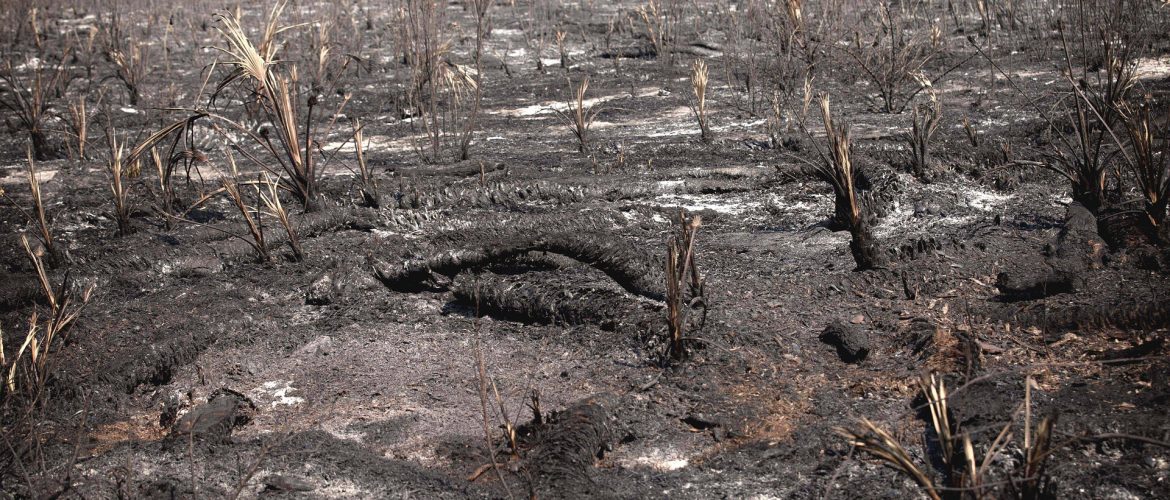Στις 25 Αυγούστου 2021, η Ιόλη Χριστοπούλου παραχώρησε δηλώσεις στον Α. Πετρά σχετικά με τις καταστροφικές πυρκαγιές στην Ελλάδα, από κοινού με άλλους ειδικούς για το περιβάλλον.
Η διευθύντρια πολιτικής του Green Tank υπογράμμισε τη σύνδεση της κλιματικής κρίσης με τα παρατεταμένα κύματα καύσωνα και των τελευταίων με τις πυρκαγιές στη χώρα.
Όσον αφορά στα μέτρα που πρέπει να ληφθούν στην Ελλάδα σχετικά με την κλιματική κρίση, τόνισε ότι ο βασικός στόχος θα πρέπει να είναι η συμμόρφωση με την Ευρωπαϊκή Πράσινη Συμφωνία, δηλαδή, η επίτευξη κλιματικής ουδετερότητας μέχρι το 2050. Ρόλο κλειδί προς τον σκοπό αυτό έχει ήδη διαδραματίσει η απόφαση του 2019 για απολιγνιτοποίηση της χώρας, ενώ απαραίτητες είναι οι επενδύσεις σε υποδομές ανανεώσιμων πηγών ενέργειας και αποθήκευσης ενέργειας.
Η ανάλυση με τίτλο «H κλιματική αλλαγή υπεύθυνη σε μεγάλο βαθμό για τις μεγά-πυρκαγιές της Ελλάδας» δημοσιεύτηκε (στα αγγλικά), στο Sputnik Newswire, στις 25 Αυγούστου 2021.
Ακολουθεί η πλήρης ανάλυση:
MOSCOW, August 25 (Sputnik), Thanasis Petras – Climate change with subsequent rise in temperatures and longer heat waves has a direct impact on the scale of wildfires in Greece, experts told Sputnik, warning that such events will intensify in the country as well as the entire southeast Mediterranean region in the years to come. In July, Greece struggled with severe wildfires in the aftermath of a week-long heat wave that hit the country bringing the temperature close to 45 °C (81 °F) in some areas.
This unusual high temperature for this region caused large-scale wildfires throughout the country. The fires destroyed more than 933.680 acres of forest, according to the National Observatory of Athens, as well as hundreds of houses, businesses, vehicles and livestock. Due to the intensity and size of the wildfires, Greece made international requests for help. Several countries sent firefighters, vehicles and firefighting planes.
Although many factors contributed to those developments, climate change effects brought longer and hotter summers in this geographical region, which caused droughts in the forests and as a result indirectly facilitated wildfires. The United Nation’s Intergovernmental Panel on Climate Change (IPCC) in July posted its sixth report stating the fact that global temperature has risen in the last 100 years approximately 1.1 °C (1.98°F) due to the greenhouse emissions from human activity.
“While the climate crisis is not the only reason behind the disastrous Greek fires, there is no doubt in my mind that climate crisis, evinced for example through the prolonged extreme heatwave of the previous days, contributed to the fires,” Ioli Christopoulou, Policy Director of The Green Tank told Sputnik.
The scientific community is predicting a much longer period of heat with more frequent heatwaves and smaller periods of cold weather as an immediate result of climate change. This will contribute to larger fires and more frequent mega-fires, Dimitris Ibrahim Climate & Energy Policy Officer at WWF Greece said in comments to Sputnik.
“The latest scientific reports also show the threat of desertification in the greater Mediterranean area as well, as in Greece as climate change effects will continue to become more obvious every year,” Alexandra Messare, Program director at Greenpeace Greece told Sputnik.
OTHER EFFECTS OF HEATWAVES
Apart from wildfires, a series of less noticeable but equally important events are also occurring in the country. As a result of increased temperatures, managing the water resources and maintaining an adequate water supply is already a challenge in some areas of Greece, directly affecting the agricultural production and farming, Ibrahim said.
“Another side effect of climate change, is the disruption in ecology as animals will not be able to hibernate due to the increasing temperatures, this development can create a negative chain reaction to the ecological balance in Greece as well as the rest of the Mediterranean countries,” Messare said.
The country’s large tourism industry can be affected as well. Northern European visitors that are traditionally the larger ‘customer base’ for Greek tourism might be wary of higher temperatures in the high season of July and August and opt for cooler destinations, directly impacting the country’s economy, the WWF expert added.
DECARBONIZATION AND REFORESTATION
Several steps are needed in order to fight the effects of climate change as well as cope with the fires.
“The problem is the climate change and for that, we should reduce to a minimum the greenhouse emissions. Greece must achieve almost zero greenhouse emissions within the next 10 years, this should be the next decade of action, and we should change almost everything,” Ibrahim said.
In September 2019, Greece announced that it will phase out lignite — brown coal — from its electricity production. Lignite accounted for more than 1/3 of Greece’s emissions since 1990. The country should aim for attaining climate neutrality by 2050 and step in line with the EU Green Deal’s objective and at the same time invest in renewable energy and energy storage infrastructure, Christopoulou said.
Apart from the long-term moves in order to fight the climate change effects, Greece should also take some steps to counter the natural damage from the disaster.
“In the aftermath of the wildfires, the authorities should examine carefully in detail the potential each forest has in reforestation, this should be done with extreme caution. Based on the local seeds and characteristics, some forests can be self-reforested. Any action for immediate reforestations could potentially be very dangerous for the ecosystems,” Messare said.
The Greenpeace expert pointed out that the reforestation process in order to be successful, local population with knowledge of tree varieties should work in close collaboration with state experts.
As for effectively protecting the country with immediate actions from the threat of wildfires, all experts agreed that forest fire prevention tactics should be front and center of risk management policies of Greece from now on.















































































































































































































































































